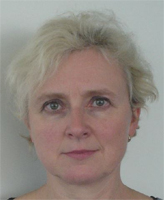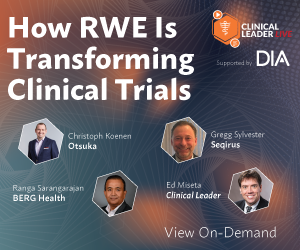The Right Precision Medicine Partner Is Essential For Trials And Patients

By Ed Miseta, Chief Editor, Clinical Leader

Patient recruitment is a challenge for all pharma and biotech companies. Despite the advances made in patient centricity and decentralized trials, the recruitment remains challenging. Part of the reason might be that the advent of precision medicine is paradoxically not making the recruitment challenge any easier.
At one time, researchers conducting a breast cancer trial would recruit women who tested positive for that cancer. Today, more focused treatments might force researchers to find women with breast cancer who are of a certain age or ethnicity, have a certain tumor subtype, or who have a specific biomarker indicating they would be a successful candidate for the treatment. Just having breast cancer without the other criteria could cause someone to be ineligible for the trial.
“This is definitely an additional challenge because we can no longer target the entire population of patients with a certain disease,” says Anna Pokorska-Bocci, associate principal scientist at Debiopharm International SA. “When we start looking for a particular characteristic, we add an extra layer of complexity.”
Three Levels Of Complexity

The complexities don’t stop there. Biomarkers come from research labs and their detection often require very sophisticated technologies. Those technologies are not readily available to hospitals and clinics taking part in clinical trials. That means sponsor companies may need to get involved and partner with companies that have the right technology. Those partnerships will allow sponsors to locate the characteristics they need in patients.
A third layer of complexity is the trial itself. Some hospitals can offer some testing solutions to specific patients. As a result, they may know which patients have specific characteristics. Unfortunately, clinical trials cannot be opened in every single hospital. There is a set number of clinics and hospitals that can participate in the trial. Patients then need to come to those sites or be found by them.
“One of the things we need to do is make access to genetic testing easier to the largest patient population,” says Pokorska-Bocci. “We need to make it available to more clinical sites or take it a step further and actually take the testing to the patients in remote areas and make them aware of trials that can help them, even if they are conducted at other hospitals.
Partners Are Necessary
Because of the complexities that exist, partnering with a company that can perform genetic testing becomes a necessity for drug developers seeking specific characteristics in patients. Pokorska-Bocci notes the ideal situation is one where the development of the diagnostic test can go together with the drug development. If the clinical trial shows that only specific patients with specific characteristics respond to the treatment under development, then regulators require that a companion diagnostic be developed and approved in parallel with the drug.
“That means your diagnostic partner must be willing to perform that parallel development and be willing to deal with the delays and hurdles inherent in drug development,” says Pokorska-Bocci. “That is necessary to get to regulatory approval at the same time as the drug treatment.”
When it came time to find a partner with whom to collaborate, Debiopharm was aware of Caris Life Sciences, a laboratory testing company that performs tumor profiling and blood-based cancer diagnostics. Pokorska-Bocci notes companies like Debiopharm International SA need to stay on top of the latest developments in the industry, including companies, technologies, and regulatory requirements. She notes choosing the company and the most appropriate technology are the most important.
“We were scouting companies and keeping aware of what technologies they offered before we began the process of finding a new partner,” she says. “We have found, through experience, that it is very important to start these partnerships early on. Finding the right partner is more difficult if you wait until the drug is half developed and then realize you need a diagnostic measure. Starting the collaboration early on helps with the trial design and speeds up the conduct of the study. This is especially true when the patients you need are hard to find.”
The Patient Perspective
Pokorska-Bocci believes the collaboration with Caris will be a long-term partnership. A successful collaboration of the pharma company and the diagnostics firm is essential to conduct complex clinical studies and seek regulatory approval for targeted therapies. There are also benefits for the patient. Being diagnosed with the appropriate test means being treated with the right drug and participating in a trial that could have beneficial results.
“That is the whole rationale behind diagnostic testing,” adds Pokorska-Bocci. “We believe it is essential to get patients tested at the right time and then enroll only those patients who meet the molecular requirements for the treatment. This will minimize exposing patients who have no chance of benefitting from the therapy in development to burdensome treatments and unnecessary side effects. While conducting genetic testing and depending on the variations in their genes, we may find also there is already a more effective treatment for them on the market. We are using the diagnostic testing to determine if the patient has a characteristic that makes them eligible for our trial or a treatment that is already available. That makes these tests very beneficial for patients.”

